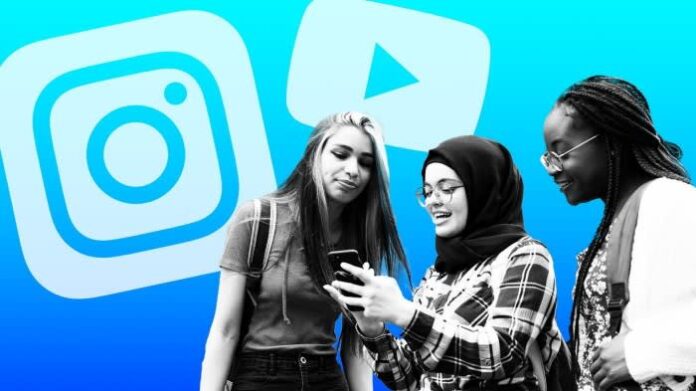Good morning. Today we’re covering:
-
Venezuela president’s fear campaign
-
Why Hispanic voters might decide the US election
-
Donald Trump’s plan to fill up the Strategic Petroleum Reserve
But first, Google and Meta made a secret deal to target under-18s with ads that promoted Instagram on YouTube, disregarding the search engine’s own rules around ad delivery to minors.
The marketing project deliberately targeted a group of users labelled as “unknown” in Google’s advertising system, which it knew was a category that skewed towards under-18s, people familiar with the matter have said. Meanwhile, documents seen by the Financial Times suggest steps were taken to ensure the true intent of the campaign was disguised.
The companies worked with Spark Foundry, a US subsidiary of advertising giant Publicis, to launch the pilot marketing programme in Canada between February and April this year. It was then trialled in the US in May. The companies had planned to expand it to international markets, people familiar with the matter said.
Meta has denied any wrongdoing, saying it disagreed that selecting the “unknown” audience constituted a circumvention of any rules. Google said its technical safeguards worked properly in this case because no user known by the company to be under 18 was directly targeted. Spark Foundry did not respond to requests for comment. The project has now been cancelled, a person familiar with the decision has said.
Big Tech has long faced scrutiny for its policies on minors. “They once again have been caught exploiting our children and these Silicon Valley executives have proven that they will always prioritise profit over our children,” Republican senator Marsha Blackburn told the FT.
Here’s what I’m keeping tabs on today:
-
Economic data: US to release initial applications for state unemployment aid data. Central Reserve Bank of Peru makes rate decision. Argentine government to release June industrial production data.
-
Companies: Cheniere Energy, Petrobras, Paramount Global, Trade Desk, Expedia, Allianz, Deliveroo, Eli Lilly, Hill & Smith, PageGroup and Siemens report.
Join Robert Armstrong of Unhedged and other FT experts from London to Tokyo next Wednesday for a subscriber-only webinar on the recent trading turmoil and where markets go next. Register for free.
Five more top stories
1. US consumers are reining in spending on travel and leisure, hitting businesses such as Disney theme parks, Airbnb home rentals and Hilton hotels, sparking fresh concerns about the health of the country’s economy.
2. “Operation Knock Knock”: Venezuela President Nicolás Maduro’s fear campaign has been terrorising opposition figures and generating alarm among the public. More than 1,100 people have been arrested and 24 killed since his disputed election victory, human rights groups have said.
3. Taylor Swift has cancelled three concerts in Vienna after Austrian authorities said they had uncovered an Islamist terror plot targeting the singer’s fans in the city this week. Austrian police arrested two people yesterday.
4. Defence technology start-up Anduril Industries has raised $1.5bn to accelerate the production of autonomous weapons for the US and its allies. This latest investment values the California-based start-up at $14bn, double its valuation in December 2022, the last time it raised money.
5. Nasa may ask SpaceX to retrieve two astronauts stuck at the International Space Station following technical difficulties with the Boeing CST-100 Starliner spacecraft they took to get there. The US space agency is deciding how to bring home astronauts Sunita Williams and Barry Wilmore, who were supposed to return to Earth nearly two months ago.
The Big Read

Kamala Harris and Donald Trump are now polling neck and neck in what is shaping up to be a close fight for the White House. In such a tight race, one group could decide the US presidential election: Hispanic voters. The demographic, which historically leaned Democratic, is slowly shifting rightward. Hear from the voters who may seal the Democratic party’s fate in November.
We’re also reading . . .
-
Streaming hangover: After years of roaring growth, the music industry’s expectations are being re-priced, with hopes pinned on superfans, Anna Nicolaou writes.
-
Sweet spot: Kamala Harris’s campaign is seeking a centre-left sweet spot, dropping the leftwing policies from her failed 2020 presidential campaign and onboarding Tim Walz to court a broader audience.
-
War memes: The wait for a seemingly inevitable confrontation between Israel and Hizbollah has given rise to gallows humour and dread for citizens on all sides.
Chart of the day
Donald Trump has vowed to immediately fill up the US’s Strategic Petroleum Reserve if he wins November’s election. “We don’t need energy from any other country,” he told Fox News yesterday. The SPR is at its lowest level since 1983, although the White House has moved to fill it up in recent weeks, taking advantage of a lull in oil prices.

Take a break from the news
The US’s Noah Lyles, the world’s fastest competing athlete, is aiming to become the first man since Usain Bolt to achieve an Olympic sprint double today in Paris. Can he do it? Here’s how his personal best stacks up against the competition.

Additional contributions from Tee Zhuo and Benjamin Wilhelm



